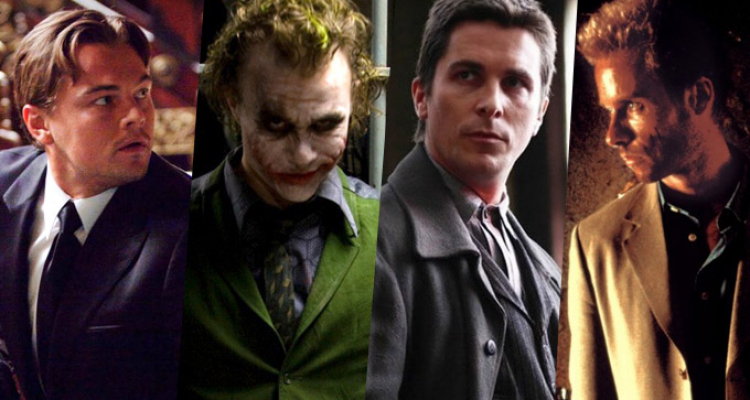A couple of years ago when we first ran our retrospective of Christopher Nolan‘s films, timed to coincide with the release of “The Dark Knight Rises,” we mentioned how, with the release of his final Batman movie, it felt that Nolan was closing off the first act of his career. “Interstellar,” which opens wide this week, therefore represents the beginning of the next phase, a shot across the bows of Nolan’s franchise-free second act.
Of course, with “Inception” we already had a taste of what an “original” movie (as opposed to one based on a comic book) would look like from the director, even after he was flushed with Batman-related success, cachet and, well, cash. “Inception” was a big, expensive movie, and a risk for Warner Bros. in that it wasn’t based on any pre-existing property and it indicated the level of faith the studio had in Nolan that he got that kind of budget to make a movie about dreams. But it was a risk that paid off financially and creatively, and also marked out the route that Nolan might take once he finished with Bruce Wayne and co.
And indeed “Interstellar” is exactly the kind of big-budget, big-brain type blockbuster that we would have hoped to see him tackle post-Dark Knight trilogy —whether or not he has wholly succeeded in delivering it is up for debate (and of course our own review has caused its own minor storm of controversy, as anything less than positive about Nolan always does). However, different writers have different takes on the film, as you will see in this piece, which features a kinder assessment, if by no means a rave.
Still, it’s instructive to look at “Interstellar” in the context of his other films. Some might find Nolan’s movies humorless (though we’d disagree), or chilly (though we’d disagree), or overly rigid (we’d… mostly disagree), but no one else is making films like his. The filmmaker is taking nine figures of Warner Bros.’ money, pairing it with big ideas and concepts, and making resoundingly entertaining and thought-provoking movies. From back before he was the all-conquering byword for quality blockbuster right up to “Interstellar,” then, here’s our look at Christopher Nolan’s filmography, ranked from worst to best.

9. “Following” (1998)
A writer (Jeremy Theobald) falls under the spell of a stranger, Cobb (Alex Haw, playing a character whose name would return for the protagonist of “Inception“), who breaks into strangers’ houses. The young man follows in his new mentor’s footsteps, only to fall for The Blonde (Lucy Russell), one of his victims, and ends up way over his head. A simple enough premise, but as we’d all come to learn about Christopher Nolan, that simplicity is deceptive. Shot on weekends on a tiny budget (about $6,000) over three or four months, not long after Nolan graduated from University College London (he was only 27 when the film was made), “Following,” a nifty but rough-edged neo-noir, is certainly a victim of its limitations. Nolan served as his own DP and some of the handheld compositions are striking, but it occasionally feels a little amateurish, never coming close to the work Nolan would later do with Wally Pfister. The acting —mostly by non-professionals (lead Jeremy Theobald is now a psychologist, Alex Haw is an architect, with only femme fatale Lucy Russell continuing to act, later leading Eric Rohmer‘s “The Lady And The Duke“)— isn’t the strongest, although partly because Nolan only shot one or two takes to conserve film stock. But the script also showcases much of what would bring Nolan to fame; a fiendishly intricate structure and a taut pace that rattles along all kinds of twists and turns (though, there is arguably one too many) in a leaner-than-lean 70 minutes. It’s a sketch for what would follow, but one that shows the immense promise he held even at such a young age.

